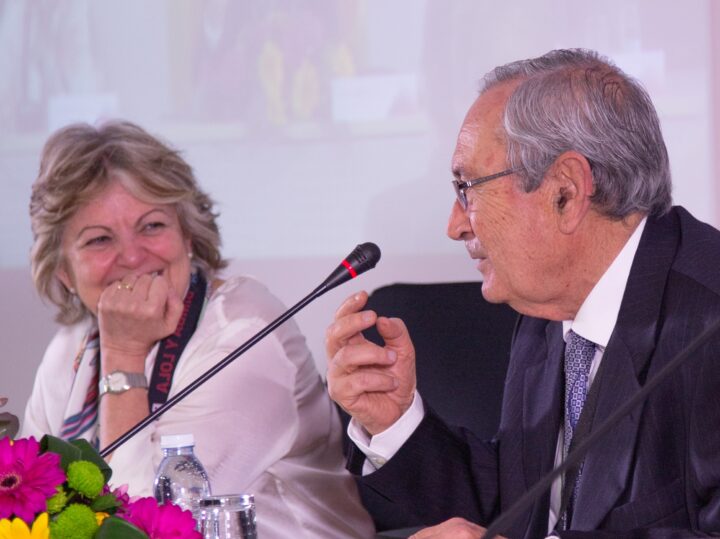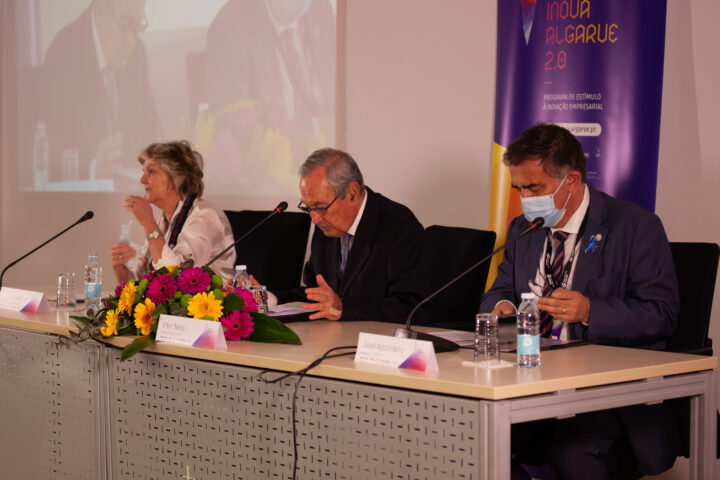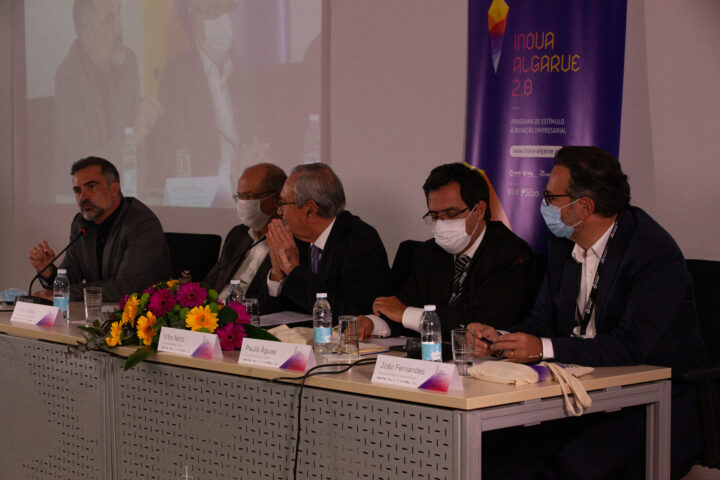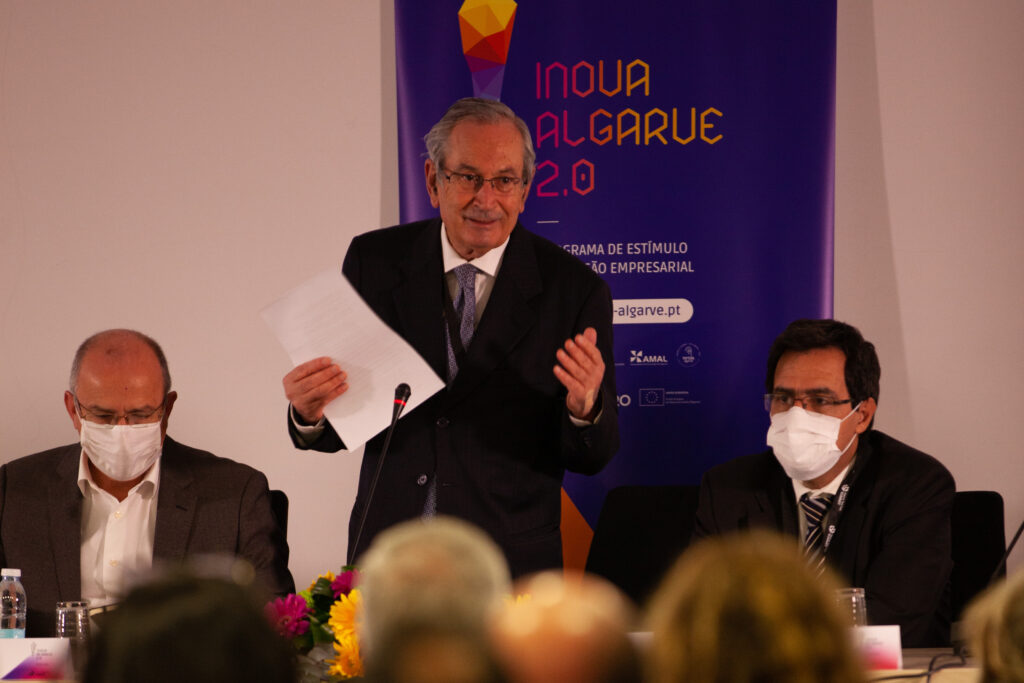The second day of the Algarve Tech Hub Summit was marked this Tuesday, March 29, by the international conference Inova Algarve 2.0, where experts and institutions analyzed the future of tourism.
The opening of the conference, at NERA (Loulé), was in charge of Vítor Neto, chairman of the board of NERA, Vítor Aleixo, mayor of Loulé, Paulo Águas, rector of the University of Algarve, António Pina, chairman of the Intermunicipal Council of AMAL, and João Fernandes, president of the Algarve Tourism Region.
From “Recovery, Cohesion and Innovation” brought by European Commissioner Elisa Ferreira to “Sustainability as a Competitiveness Factor in Tourism”, defended by Cristina Siza Vieira, executive president of AHP, there were also interventions by António Jorge Costa, president of IPDT, Alessandra Priante , director for Europe at the World Tourism Organization – in a video recorded at Barajas Airport, in Madrid, due to a flight delay – and Luís Araújo, president of Turismo de Portugal – from Tel Aviv, Israel, where he participates at a tourism fair.

«The morning, at the NERA facilities, in Loulé, was fruitful in sharing points of view on the needs of the region to recover and prepare Tourism», says the organization.
After the pandemic, when a recovery of the economy was envisaged, the war in Ukraine, which the Russian invasion brought to Europe, once again threatened the most optimistic results, as Elisa Ferreira said.
"The European Union is a union of principles and democracy and, due to Ukraine's willingness to join, we can see how essential structural values are to guarantee processes of rebalancing in our common life", he said.
Elisa Ferreira also pointed out the weaknesses that emerged with the conflict.

“It confirmed the risks of very long value chains, with additional risks – an increase in transport and foodstuffs – for the tourism sector”, he defended.
In the Algarve, the European Commissioner congratulated the projects in competition at INOVA Algarve 2.0 – which will be presented tomorrow by the jury that will select the winners – considering them “inspiring”.
Regarding the question “Is there too much tourism?”, Elisa Ferreira recalled that she witnessed the same discussion around the textile industry and concluded: “we only know how to add value in what we know how to do”.
Sustainability was a strong topic during the morning, with Luís Araújo highlighting the topic as a “factor of attractiveness and competitiveness” with a view to the Tourism + Sustainable 20-23 plan, the strategic reference of Turismo de Portugal, which aims to mobilize agents and society for the promotion of sustainability, in line with the objectives of the Tourism Strategy 2027.
«We want to grow with account, weight and measure», he defended.
In this sense, Luís Araújo underlined the importance of reducing seasonality and guaranteeing the quality of life for the populations living in the territory. He challenged entrepreneurs to see sustainability «more than a marketing strategy, but an incentive for companies to improve their efficiency».
Ana Jacinto, secretary-general of AHRESP, pointed out this year as “the peak of insolvencies in the restaurant sector” and defended the need to solve structural failures, the lack of manpower and the reduction of the tax burden in the sector. Alberto Mota Borges revealed that in 2020 the Airport of Faro, who directs, «lost 75% of air traffic» and spoke of the unpredictability of recovery in the face of current events.
As for Pedro Costa Ferreira, president of the board of APAVT, he added another not very encouraging possibility: «the end of short-haul flights, in the short term».

Finally, Mário Ferreira, CEO of the NAU group, pointed out the bureaucratic weight and legislative unpredictability that make the national territory unattractive for investors who want to build from scratch.
During the afternoon, the panel “Working in the Tourism Sector, what Future?”, led by João Fernandes, president of the Algarve Tourism Region, raised the issues that challenge Tourism: the lack of manpower, low wages, a housing and social policy that does not take into account the needs of a region focused on tourism, the crisis and the pandemic that exacerbated the problems and that the war brought to light.
“Challenges and Financing Opportunities for the Tourism Sector”, the session that closed the program, pointed out paths and opportunities. José Eduardo Carvalho, president of the AIP/CCI raised the question: «do we need to capitalize companies or contract more debts?».
The discussion was launched. The general lines of the Innovation and Digital Transition program, which succeeds Compete 2020, were presented, establishing bridges for the future.
The second Meet Up Business Drinks & Talks, by ANJE – National Association of Young Entrepreneurs, was dedicated to Tourism and had the participation of companies, entrepreneurs, business associations, public administration agents and researchers, closing the program.



















Comments